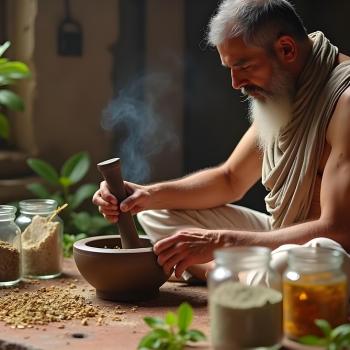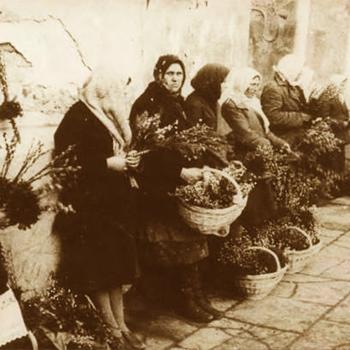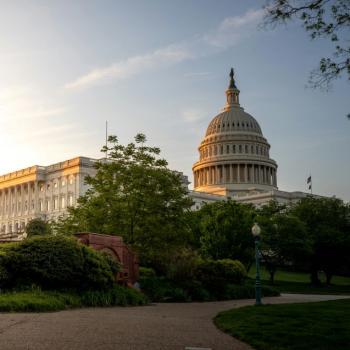The narrative of the Mountain Meadows Massacre is a complex tale of a perfectly hideous storm -- a tragic convergence of circumstances, decisions, and personalities. But just relying on a trusted source to tell the story is not the end. If we never move beyond our initial reaction to the existence of the book -- no matter how positive -- it cannot help us better understand ourselves and our mortal condition. Our circumstances are different, but the massacre instigators are not wholly unlike us. The Book of Mormon prophet Lehi taught "for it must needs be, that there is an opposition in all things." That includes each of us individually.
At the risk of sounding cliché, if we do not make an effort to understand the past, it repeats. If we do not put in the effort to liken it to ourselves, it cannot transform us. Joseph Smith did not assert, "We have learned by sad experience that it is the nature and disposition of almost all" those outside of the Church of Jesus Christ of Latter-day Saints that "as soon as they get a little authority, as they suppose, they will immediately begin to exercise unrighteous dominion." He talked about all of us.
Opposition is in all things and within all of us: women and men, inside and outside the church, then and now. It is not reserved for jihadist Muslims in 2001 or southern Utah fanatics in 1857. We are all capable of extreme behavior. As Aleksandr Solzhenitsyn wrote in Gulag Archipelago, "If only there were evil people somewhere insidiously committing evil deeds, and it were necessary only to separate them from the rest of us and destroy them. But the line dividing good and evil cuts through the heart of every human being."
There were opportunities for those involved in the massacre to stop what was happening at multiple points along the path of escalation. Whether it is a major act of collective violence or daily minor acts of destruction wrought against those surrounding us, we all have the capacity to choose the bad. But we likewise have the capacity to choose the good. The past is not for us to sweep under the rug with a claim that it has no relevance to us; we need to study and liken it to ourselves for it to change our present.
Janiece Johnson received Master's degrees in American History and Theology from Brigham Young University and the Divinity School at Vanderbilt respectively. She is currently an American History Ph.D. student at the University of Utah and editing a documentary history of the prosecution for the Mountain Meadows Massacre.
[1] The misuse of two specific elements - the phrase "do your duty" and the idea that massacre participants made a solemn oath that they would never talk about the massacre - are significant to understand this magnification of religious extremism.See Ron Walker, Richard E. Turley, Jr., and Glen Leonard, Massacre at Mountain Meadows (Oxford and New York: Oxford University Press, 2009), 199, 365 n105, 215-6, 371-2 n32.
[2] Emmeline B. Wells, "Biography of Mary Ann Angell Young," Juvenile Instructor, 1 Jan. 1891, p. 17.




